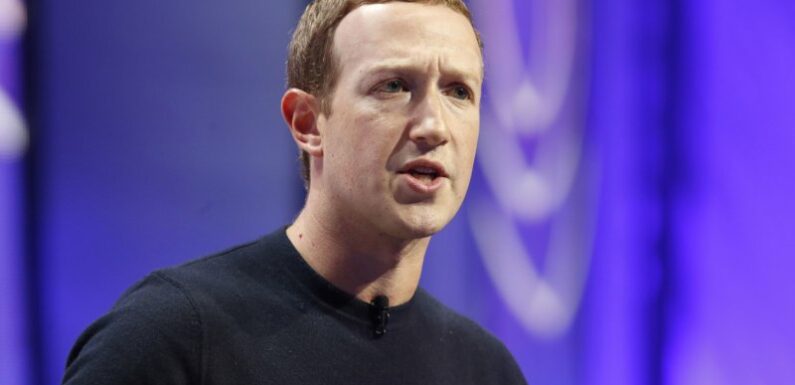
Save articles for later
Add articles to your saved list and come back to them any time.
Facebook’s parent company Meta is making its artificial intelligence large language model, Llama 2, available free through partnerships with major cloud providers including Microsoft.
Meta isn’t charging for access or usage of the model it developed, the company said. Instead, by opening up the technology to other companies, Meta says it will benefit from improvements that can be made when more developers use, stress test and identify problems with it.
“I believe it would unlock more progress if the ecosystem were more open, which is why we’re open sourcing Llama 2.: Mark ZuckerbergCredit: Bloomberg
“Open source drives innovation because it enables many more developers to build with new technology,” Meta chief Mark Zuckerberg said in a Facebook post. “It also improves safety and security because when software is open, more people can scrutinise it to identify and fix potential issues. I believe it would unlock more progress if the ecosystem were more open, which is why we’re open sourcing Llama 2.”
Making the large language model, or LLM, more widely accessible, also establishes Meta alongside other tech giants as having a key contribution to the AI arms race. Meta is spending record amounts on AI infrastructure, and Zuckerberg has said incorporating AI improvements into all the company’s products and algorithms is a priority.
Meta took on the cost of training the models. Cloud providers including Microsoft, Amazon.com and Hugging Face are hosting the tools and providing the computing power to run them.
Meta said it had no comment on whether Microsoft will charge for access to Llama 2 via its cloud services and on Windows. An Amazon spokesperson said the company isn’t charging for access to the model, and customers only pay for usage of SageMaker, its toolkit for machine learning developers. Microsoft and Hugging Face didn’t immediately respond to requests for comment.
Microsoft is also a major funder and partner of OpenAI, the maker of ChatGPT. Neither ChatGPT nor similar offerings from Microsoft or Google are open source.
The commercial rollout of Llama 2 is the first project to debut out of the company’s generative AI group, a new team assembled in February. To prepare the new model for release, Meta employees and third-parties ran safety tests called “red-teaming exercises.” It’s a separate model from the one Meta uses for its own products.
“The pace has been incredible — incredibly quick decision-making, really tight loops, really focused execution to lead up to this Llama 2 moment,” said Ahmad Al Dahle, vice president of Meta’s generative AI group. “We had over a hundred thousand requests for Llama 1. So we went back to the drawing board, brought our teams together, and made a ton of investments on alignment and research and safety in order to build a model that we felt was ready.”
The partnership aligns Meta more closely with Microsoft, which has emerged as the clear leader in AI through its investment and technology partnership with ChatGPT creator OpenAI, which charges for access to its model. Much like tech peers Google and Microsoft, the social media company has long had a big research team of computer scientists devoted to advancing AI technology. But it’s been overshadowed as the release of ChatGPT sparked a rush to profit off of “generative AI” tools that can create new prose, images and other media.
Microsoft’s tie-up with OpenAI doesn’t concern Meta, says Al Dahle. He said Llama 2, being open-sourced, can provide the opportunity for small- and medium-sized businesses to more quickly test and use LLMs without owning the servers and computing power to host their own custom model.
Large language models, or LLMs, power text-based chatbots, though their uses aren’t limited to helping AI answer questions. The models are trained by being fed immense amounts of information, usually from the internet, to refine a process for generating responses.
Meta will also be opening Llama 2 access for academic researchers.
Previously, the company developed PyTorch, an AI framework, to be accessible to all and eventually spun it out to be overseen by the nonprofit Linux Foundation.
Bloomberg, AP
Get news and reviews on technology, gadgets and gaming in our Technology newsletter every Friday. Sign up here.
Most Viewed in Technology
From our partners
Source: Read Full Article
